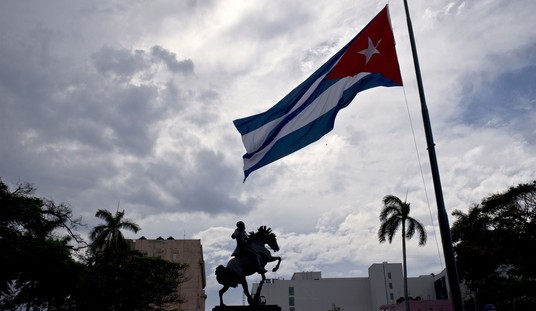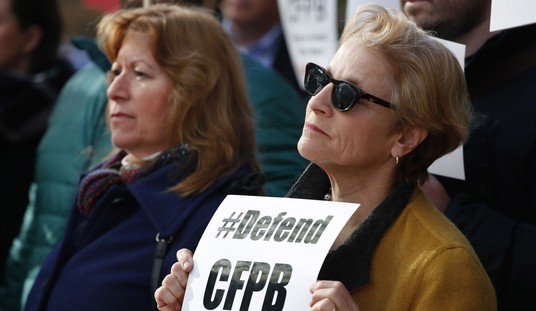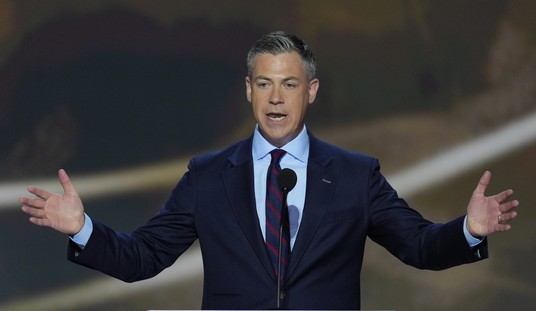We’ve seen Bud Light and Target seemingly driving their companies over a cliff by embracing woke things with which their customers don’t agree. Why would they do that when it isn’t good for their bottom line? It doesn’t make a lot of business sense. Target CEO Brian Cornell said that it was good for their bottom line, when it was demonstrably not, as their stock plunged and they lost more than 13 billion in market value. Bud Light lost almost 30 percent of its sales volume.
As ex-Anheuser-Busch executive Anson Frericks explained, it’s not just the business bottom line that they’re looking at and it applies to far more companies than just Bud Light and Target. Frericks spoke to Fox’s Jesse Watters regarding the influence of investment firms like BlackRock and Vanguard helping to spur some of this woke movement.
Fmr. Anheuser-Busch Exec. on How BlackRock, State Street, & Vanguard Force Companies to Go Woke
“Citizens should be able to decide these things through free and fair elections, not necessarily with a small group of asset managers and CEOs that are telling individuals how to live… pic.twitter.com/DmnZUVwJKO
— Chief Nerd (@TheChiefNerd) June 4, 2023
I think there’s been discussion about the ESG pressure that companies are facing, but Frericks also talks about the backend of it as well — the pressure from liberal politicians on those investment firms.
He said BlackRock, Vanguard, and another firm, State Street, manage about $20 trillion in capital and use their clout to promote agenda politics being pushed on them by progressive lawmakers overseeing government pension funds that the companies profit from.
One of the firms manages California’s pension fund — the largest in the country — and California politicians can have a big say in the corporate governance and politicking of the firms they invest so heavily in, he added.
“In California, for example, they recently have mandated those large pension funds that they divest from things like fossil fuels and oil and gas, and then when Bill de Blasio, [former] mayor of New York, was there, he did the same thing,” he said.
“But they also tell BlackRock, State Street, and Vanguard if they’re going to manage their money, they have to commit to things like ESG — diversity, equity, inclusion — and adopt firm-wide commitments that they therefore then force onto all the major companies in corporate America.”
So it’s important to not just see the ESG element but the political pressure as well.
The problem, as Frericks explained, was then how this affected companies, such as in the case of Atlanta and the Georgia election integrity law, which the legislature enacted.
“But what was crazy to me was that after the fact, BlackRock came out and they said, ‘We’re against this law. We think this is bad for democracy, this is bad for society,’ and they basically then had companies like Coca-Cola, like Delta and heck — even Major League Baseball, they canceled an All-Star Game over this.” [….]
“But frankly, it’s bad for democracy as well. Citizens should be able to decide these things through free and fair elections, not necessarily with a small group of asset managers and CEOs that are telling individuals how to live their lives,” he said.
Watters pointed out part of this video of a New York Times panel discussion from 2017 including BlackRock CEO Larry Fink talking about “forcing behaviors.” Even Twitter owner Elon Musk called that “concerning.”
BlackRock CEO: “At BlackRock we are forcing behaviors… you have to force behaviors.” pic.twitter.com/2Q2H84GPC7
— TexasLindsay™ (@TexasLindsay_) June 4, 2023
Concerning
— Elon Musk (@elonmusk) June 5, 2023
Fink was talking about hiring there.
Yes, you want to encourage everyone to apply and have a chance to get the job. But then when you get to pushing politics, it goes beyond that.
So it’s much more involved than the individual companies.
The boycotts serve a big purpose in showing that the American public wants leftist politics and preaching out of their clothing and their beer. But this also shows that as a practical matter, you have to change that back end that is pushing this agenda — and that’s coming from the Democrats — if you truly want this practice of injecting politics into the mix to change. Up until now, they laughed off the power of the boycott. Now they have to take that seriously.













Join the conversation as a VIP Member